2024 Crypto Startup Trends Report

Qiao Wang
·Oct 21, 2024
Alliance is the leading crypto accelerator and founder community. We receive over 3,000 applications every year from the best crypto startups looking to join our accelerator program.
Our accelerator program runs twice a year and thus we report our data in halves.
From this large sample size of applicants, we've derived unique and generalizable insights about each project and its founders.
In this report, we provide trends observed in this application data and add insights as to what they might indicate for the broader startup ecosystem.
Key trends we observe from internal data [2021-2024]:
1. Blockchain
Which blockchains do startups choose?
- Ethereum is still the major ecosystem where startups build (roughly 2/3 of all startups build there today), with Solana (now 18% after falling to 8% immediately after FTX's collapse) and Bitcoin (5% today) growing rapidly over the last 1.5 years.
- Within the Ethereum ecosystem, 59% of startups are building on Optimistic rollups (Optimism, Base, and Arbitrum) today.
- Polygon is steadily losing startups as Polygon zkEVM is falling behind its Optimistic counterparts.
- Base is gaining most rapidly among all Ethereum L2s, growing to >28% share of startup activity from 0 in just one year.
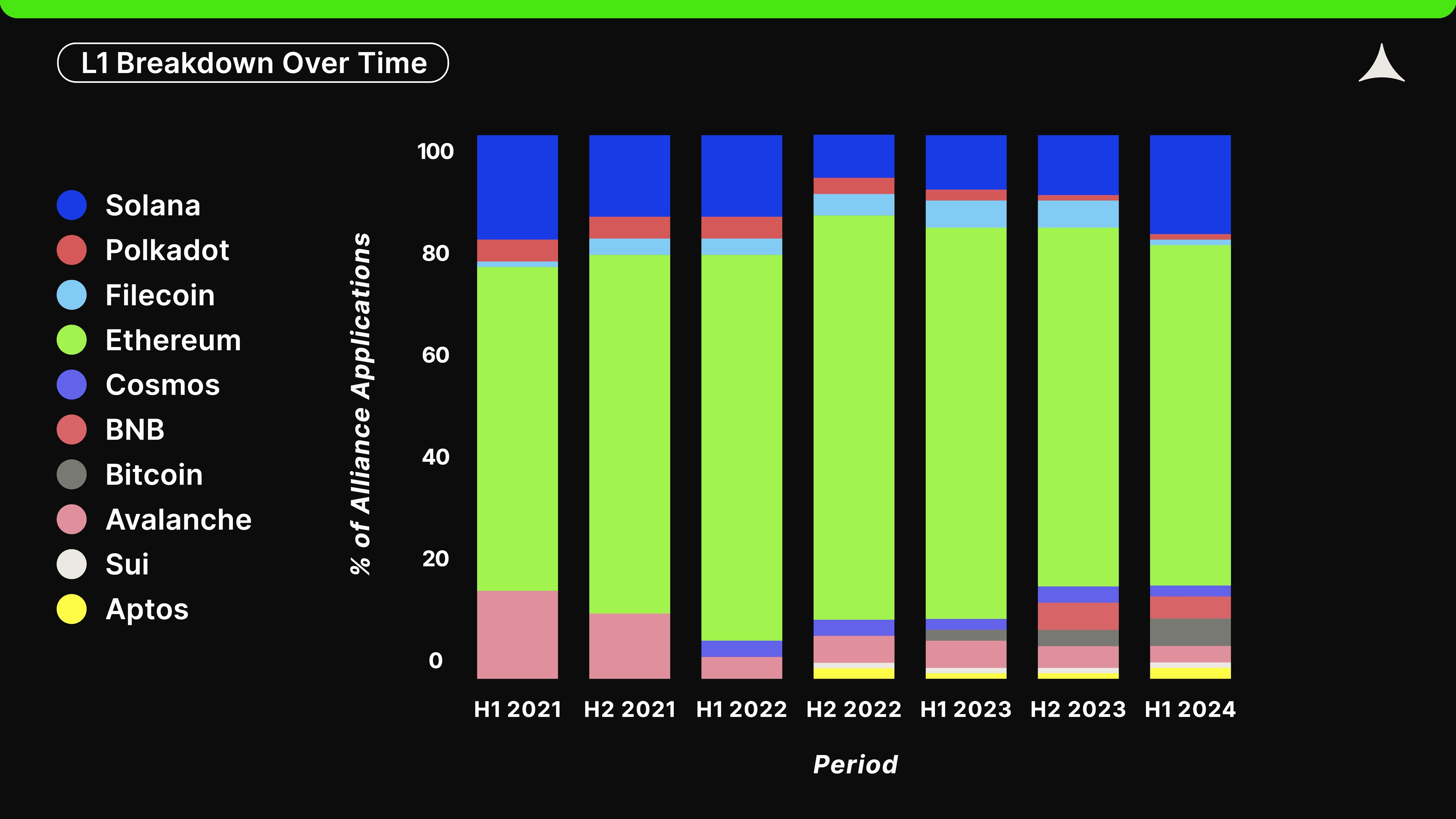
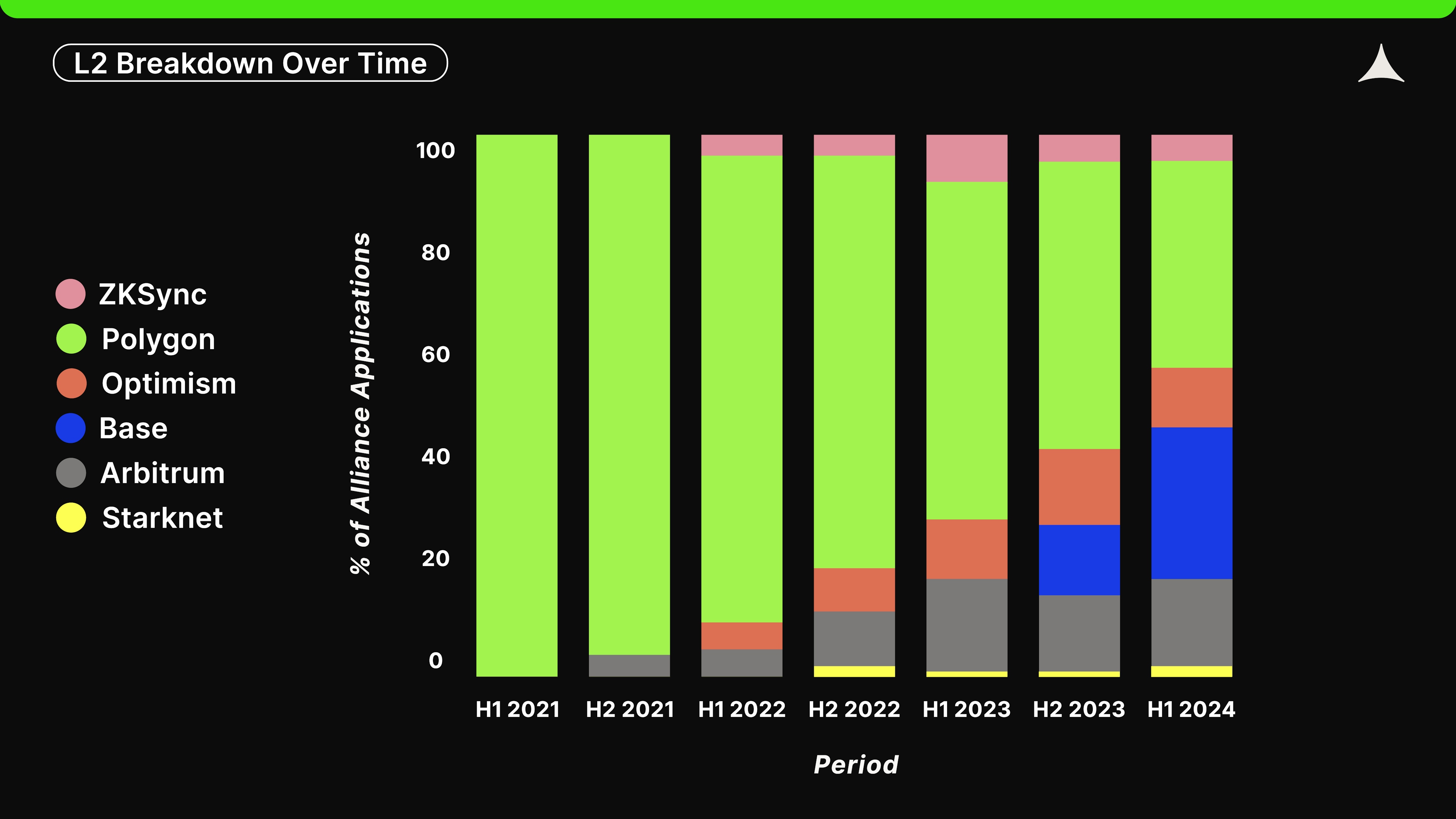
2. Product Verticals
What type of products are our applicants building?
- Verticals increasing in popularity: Infrastructure, DeFi, Payments, AI x Crypto.
- Verticals decreasing in popularity: DAOs and NFT.
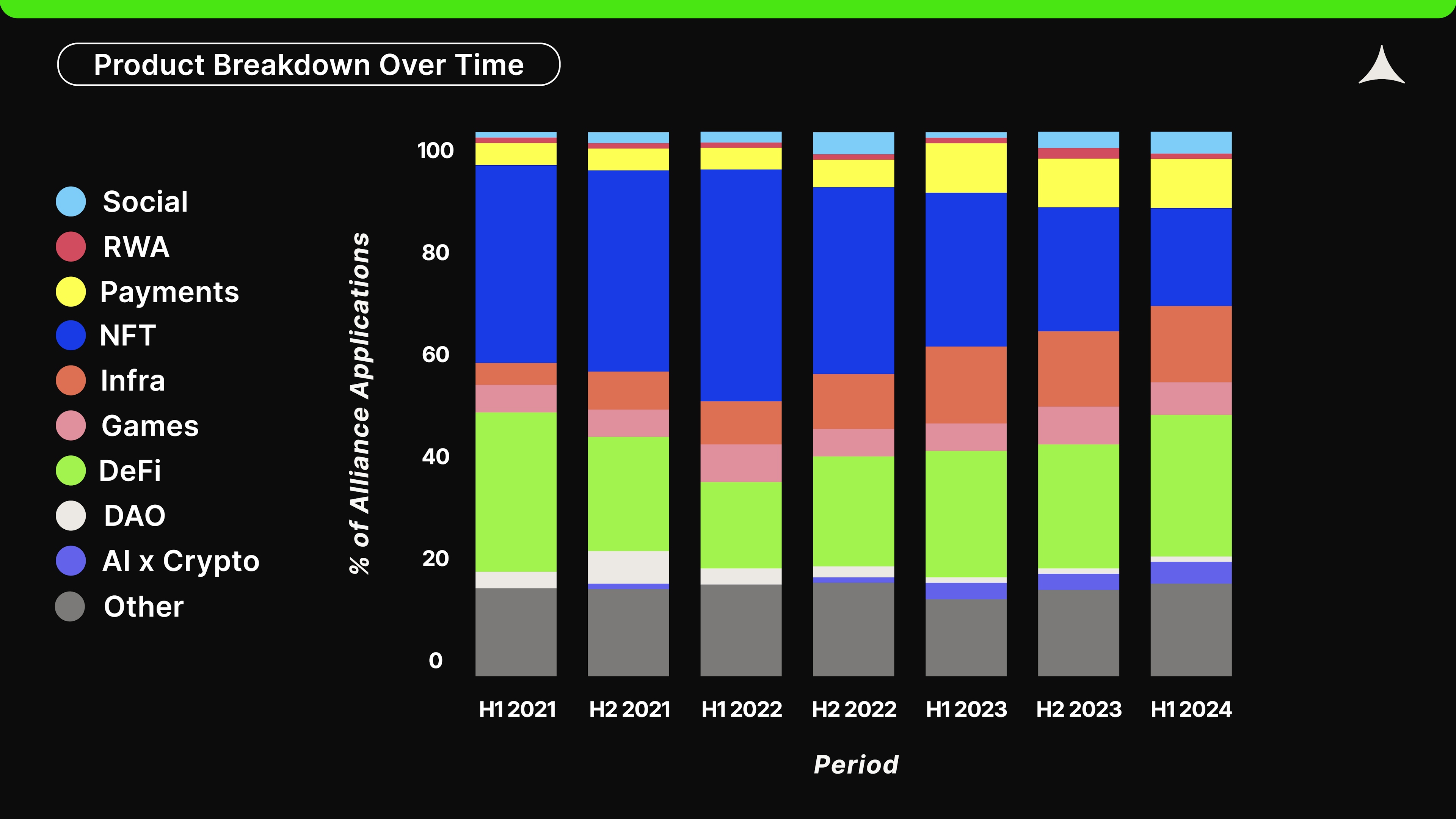
3. Geography
In which continents are founders based?
- Europe (31%), US and Canada (29%), and Asia (27%) were the top 3 regions where startups are building today.
- The percentage of startups from the US and Canada, however, has been steadily declining over the last few cohorts whereas Asia and Africa have been growing.
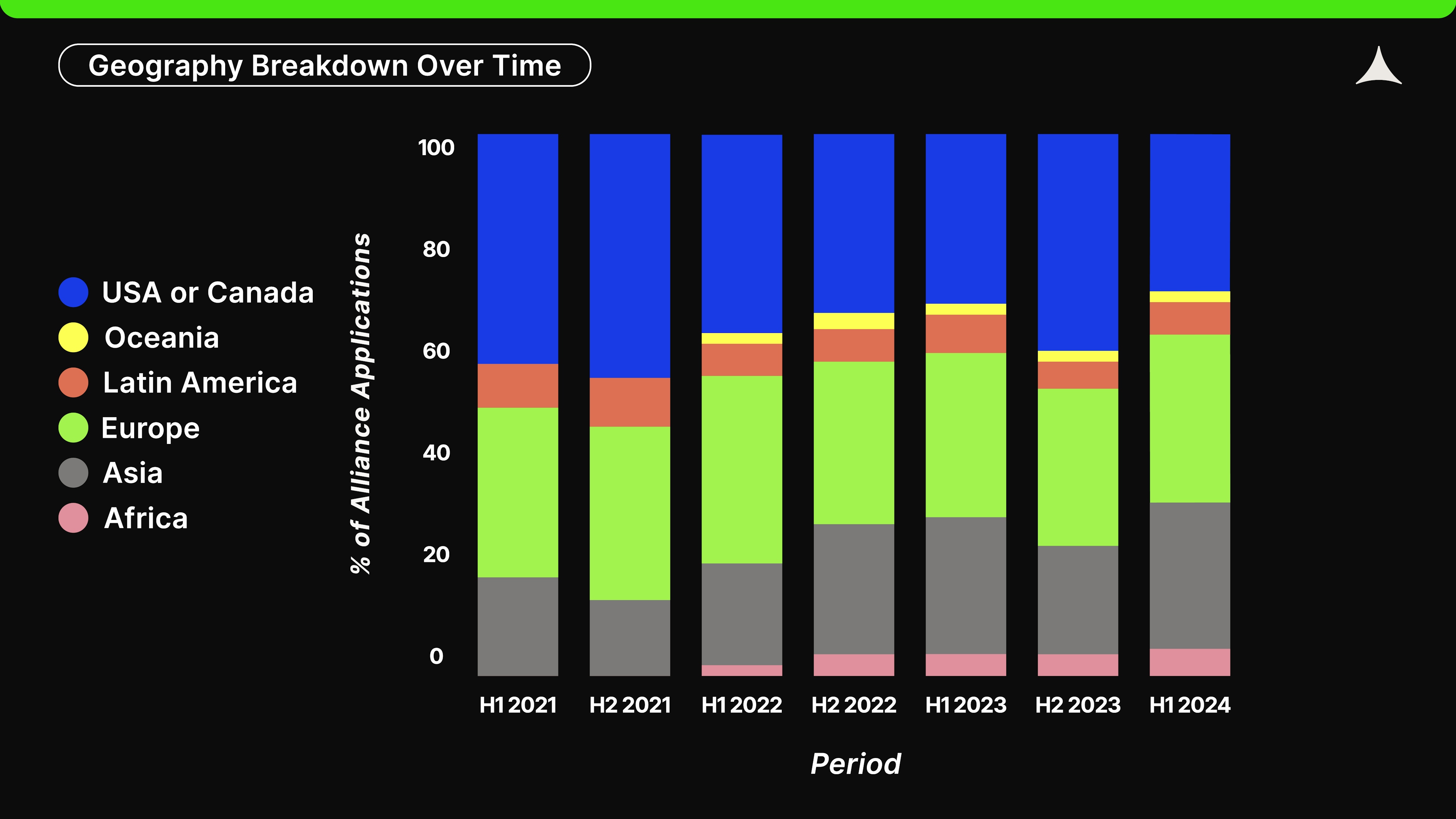
4. Trending Buzzwords
What keywords are increasingly mentioned on applications?
- We grouped keywords into a few categories to get a glimpse of what may be top of mind for startups over time.
- Buzzwords that have been growing in popularity within the last 12 months include fully homomorphic encryption (FHE), chain abstraction, meme, SocialFi, prediction market, liquid staking, restaking, RWA, stablecoin, L1, L2, and L3.
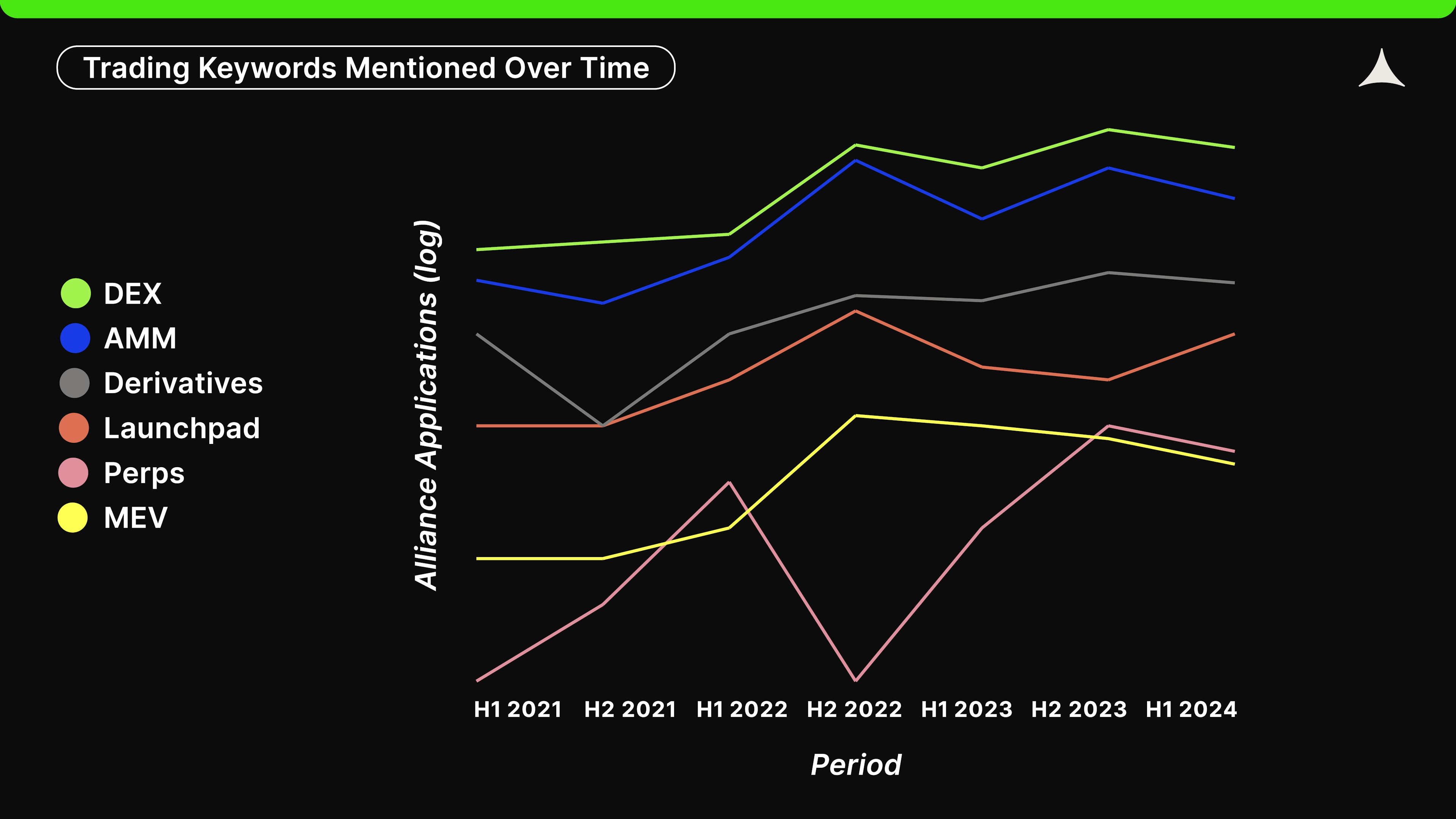
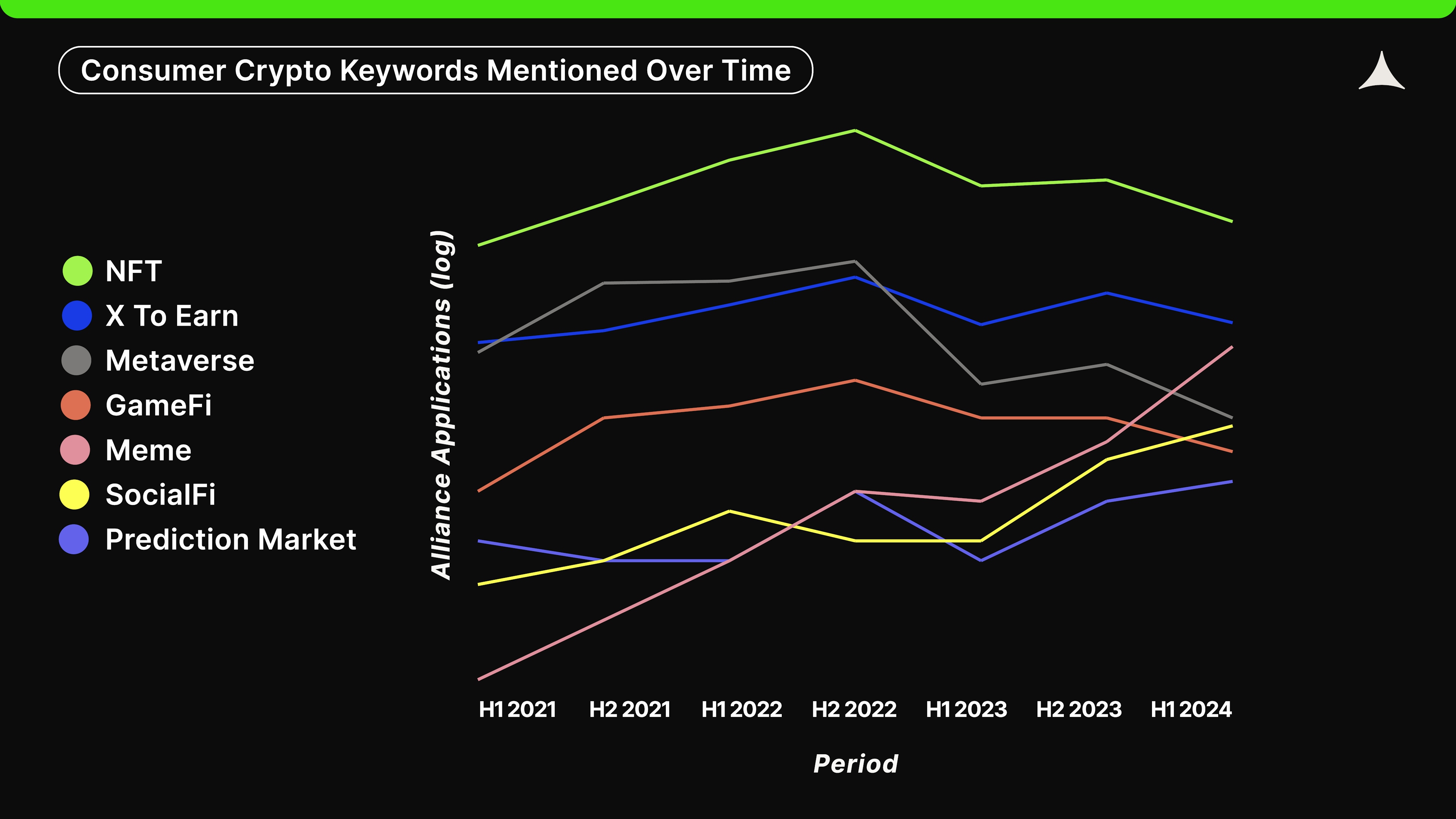
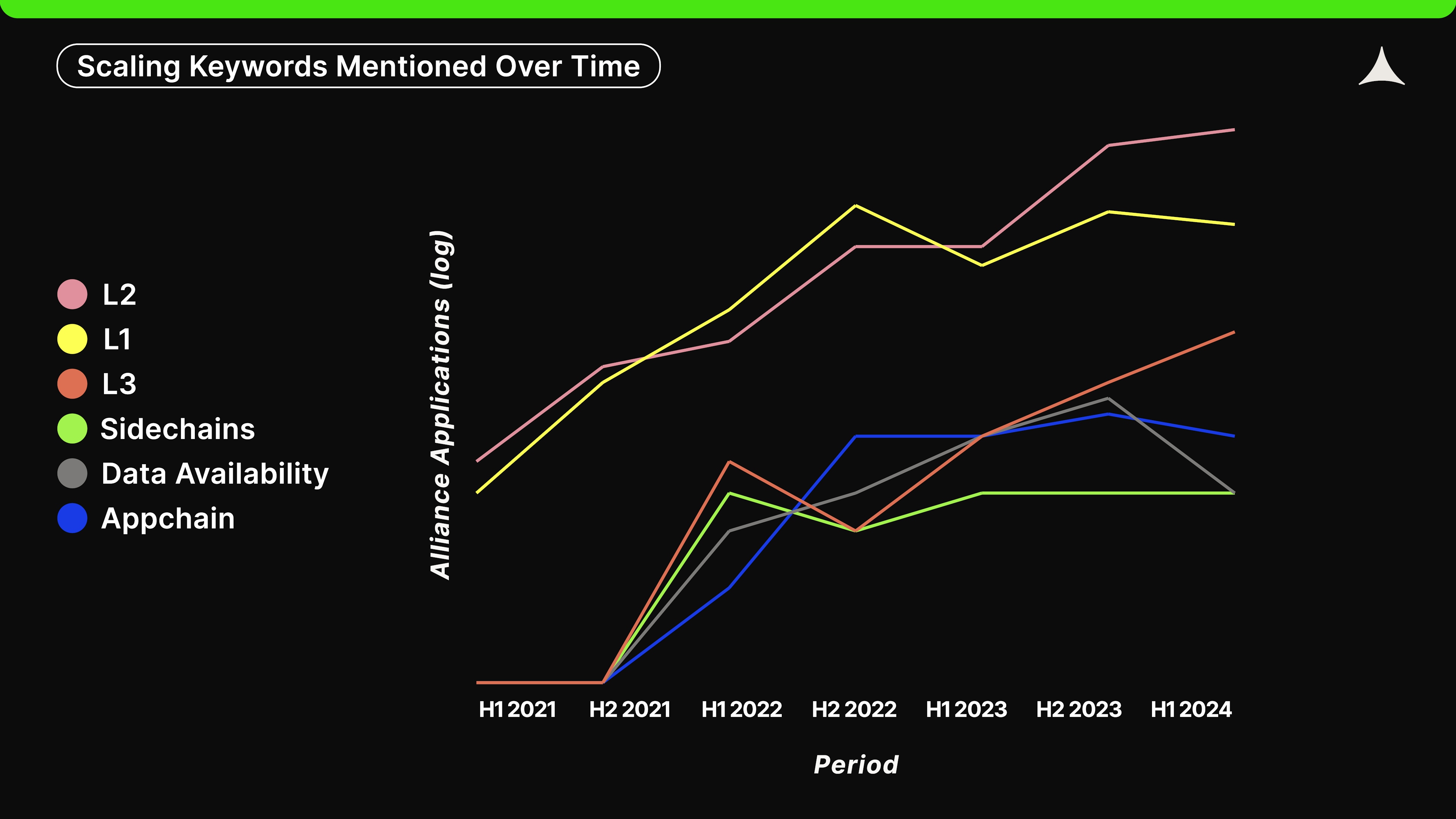
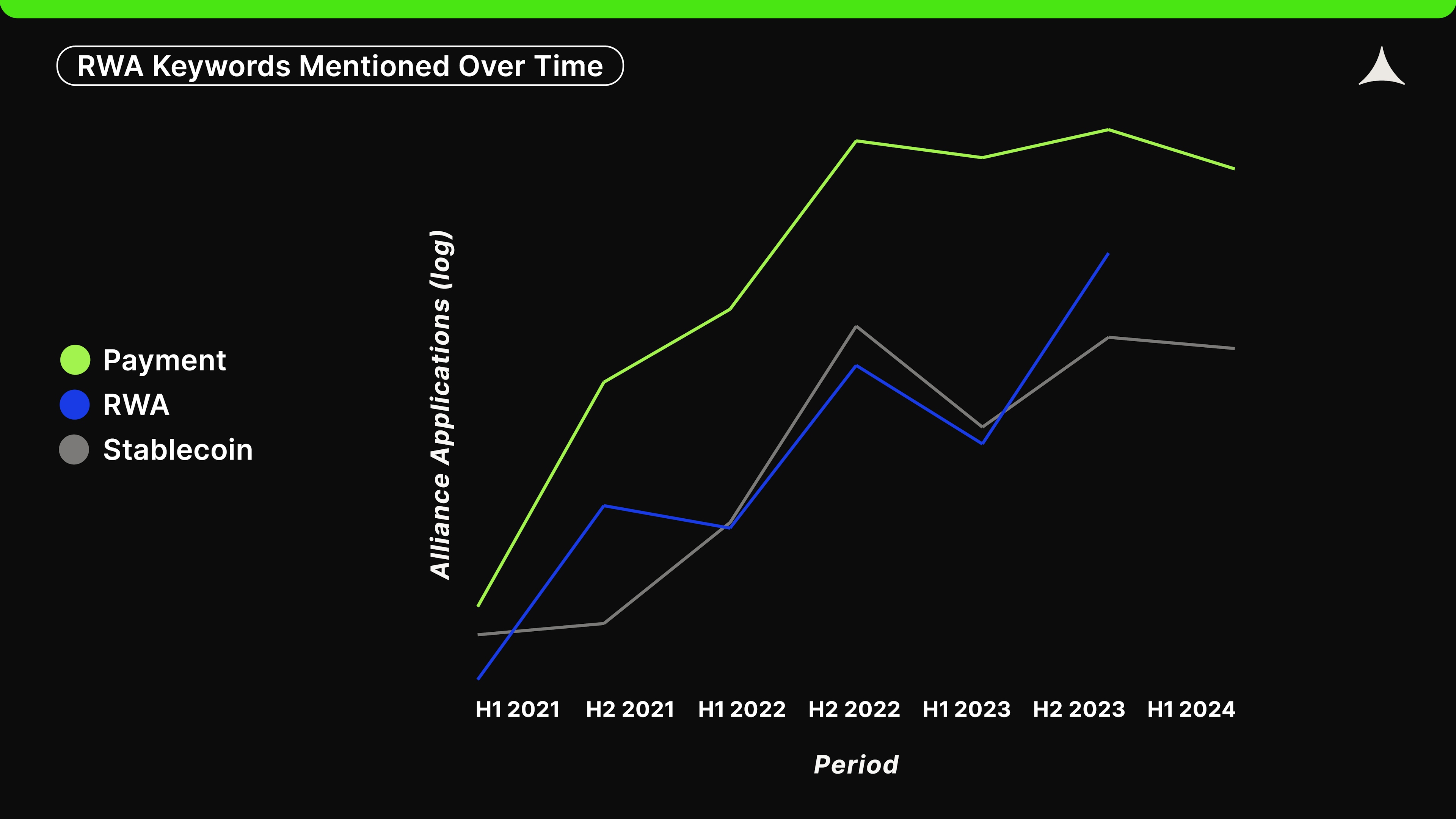
5. Founder Background
Which schools and companies are founders from?
- Today, 30% of founders apply to our accelerator with big tech (S&P500) experience and 12% of founders studied at top schools (QS top 100 universities).
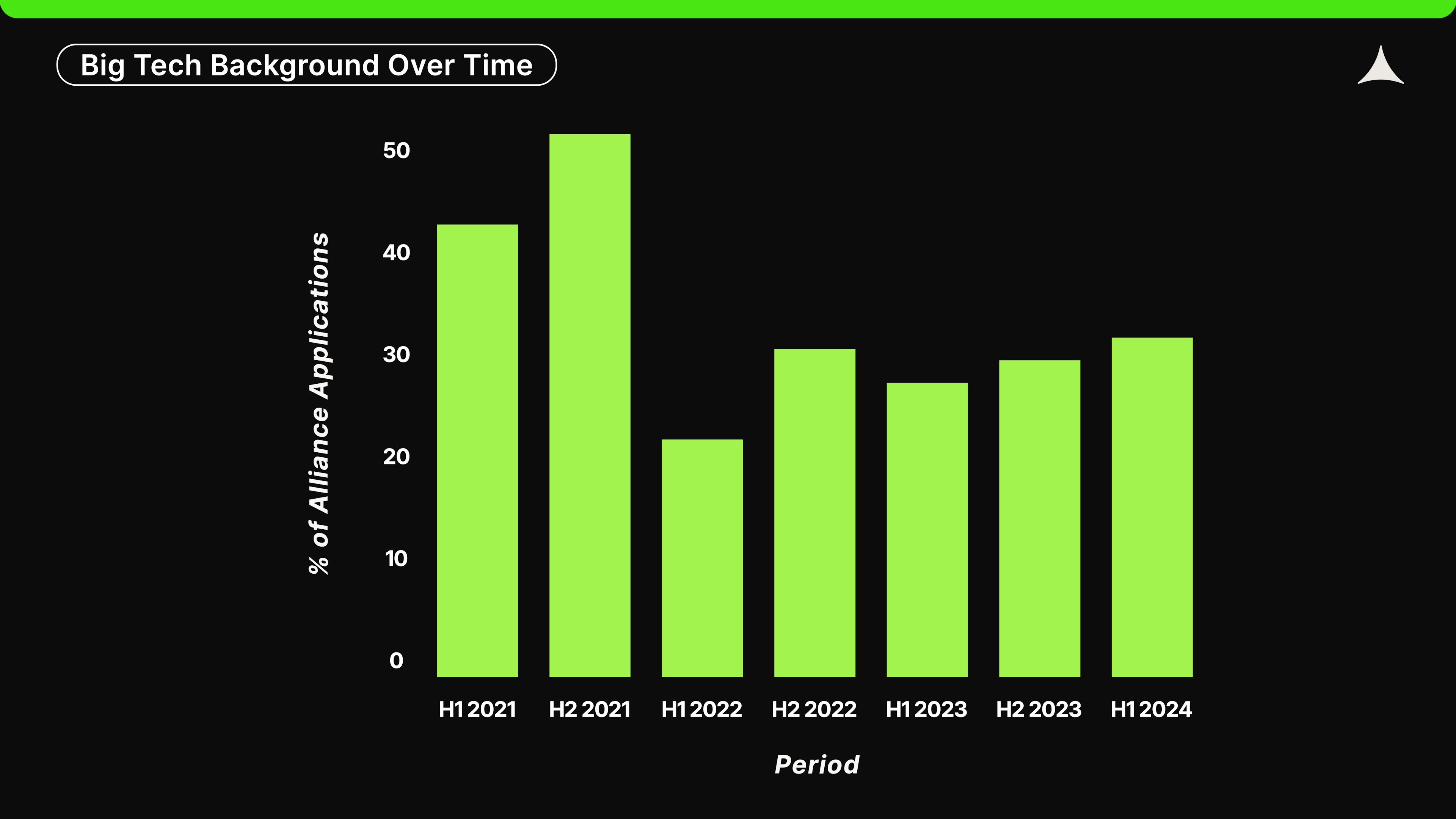
6. Team Composition
How are founding teams composed?
- 39% of startups have solo founders and in those with more than one founder, their equity splits are equal half the time.
- 72% of startups work fully remote (with not a single employee working on-site).
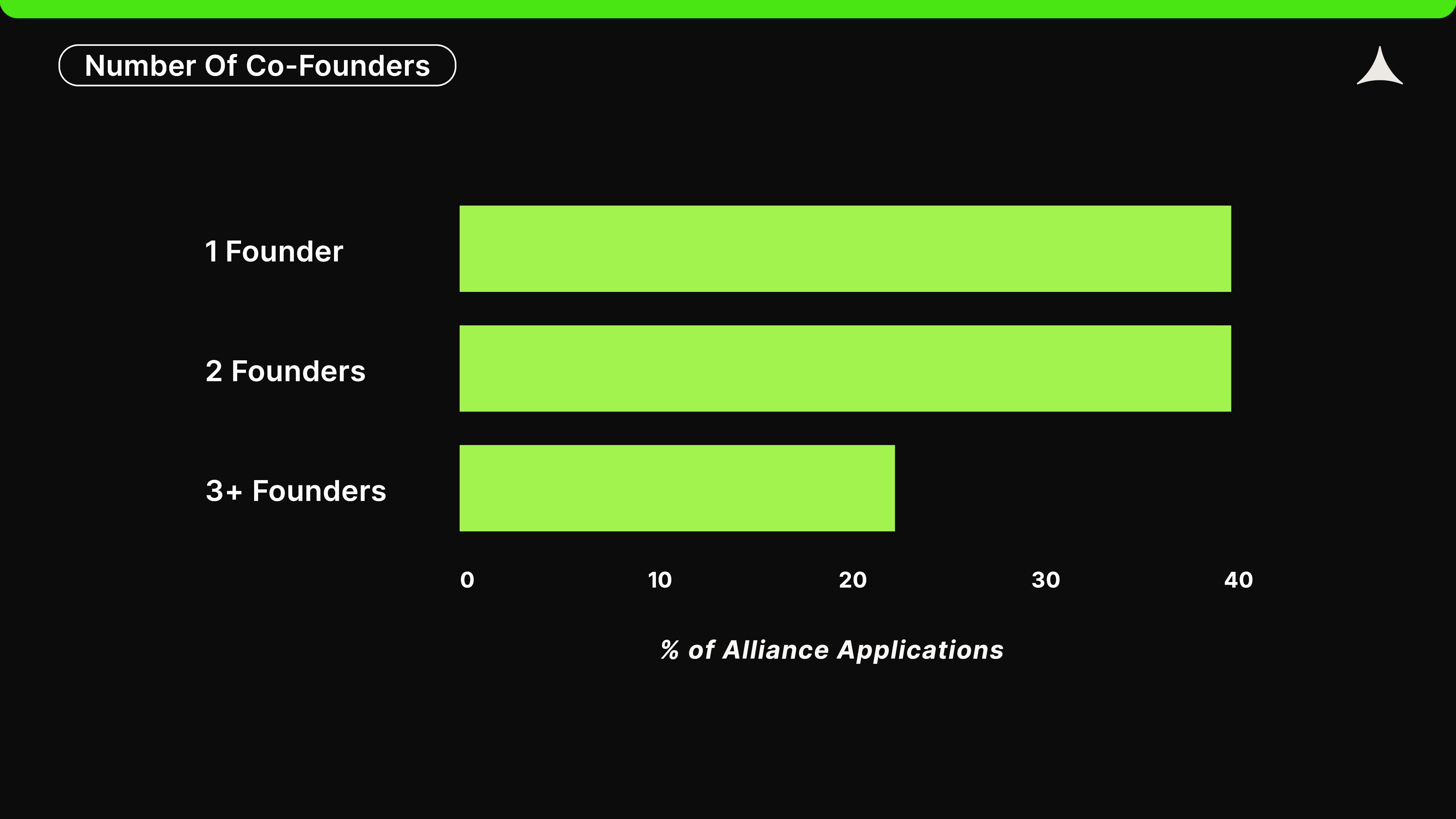
More to Read
Fintech RFS

Qiao Wang
·Dec 15, 2025
While it may seem that the low hanging fruit from the digitization of finance has been picked, about half of the world population is still either physical-first or outright unbanked. Furthermore, current technology waves – namely crypto and AI – have the potential to unlock greater value for consumers and businesses.
You're Vibe Coding Wrong

Mohamed Elseidy
·Jul 10, 2025
Most developers use Tier 1 for UX & rapid prototyping, Tier 2 for daily development, and Tier 3 for complex engineering challenges. The best strategy is to combine them when needed rather than trying to force one tool to do everything. Here's what each tier actually delivers and when you should use them
Your Moat Isn't Your AI Prompt. It's Your Evaluations

Mohamed Elseidy
·Jun 17, 2025
Anyone can copy a prompt, but they can't replicate the months of iterative learning, the domain knowledge and the edge cases discovered through real user interactions, and the systematic evaluation framework that guided every prompt tweaking decision.